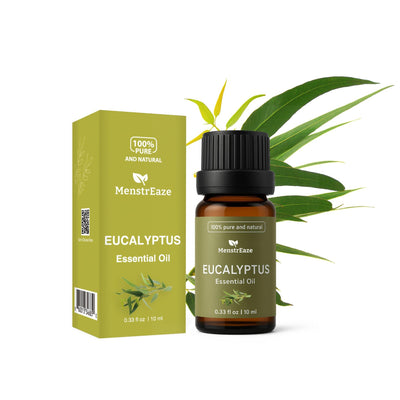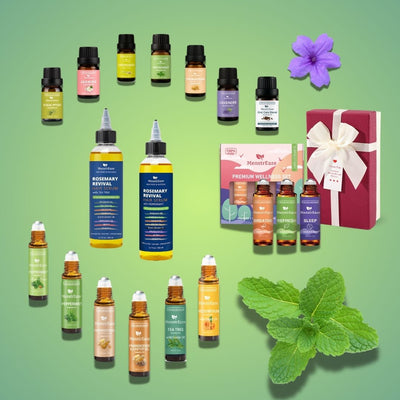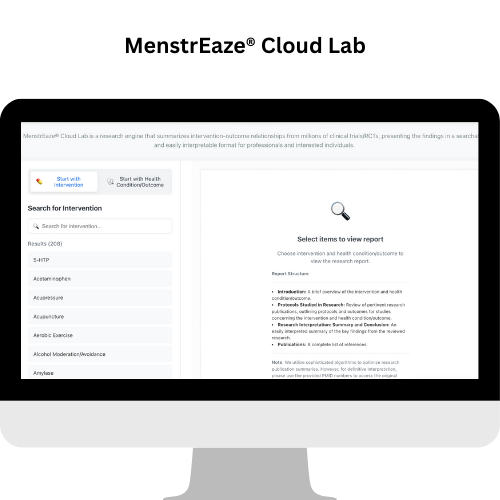Eucalyptus essential oil, with its distinctively fresh and camphoraceous aroma, has long been celebrated as a versatile natural remedy. Originating from the majestic eucalyptus trees of Australia, this potent oil has garnered global recognition for its invigorating scent and a wide array of applications. As more women seek natural solutions for their health and well-being, eucalyptus essential oil stands out as a compelling option. This comprehensive guide will explore the multifaceted benefits of eucalyptus oil, delve into its specific relevance for women's health, and provide practical advice on how to safely and effectively incorporate it into your daily life.
The Power of Eucalyptus: Unveiling the General Benefits
The eucalyptus tree, native to Australia, has a rich history of traditional use. For centuries, the Aboriginal people of Australia utilized eucalyptus leaves and oil for their medicinal properties, particularly for healing wounds and addressing fungal infections [1]. This knowledge gradually spread, and eucalyptus found its place in other traditional medicine systems, including Chinese, Indian (Ayurvedic), and Greek and European practices, where it was used to alleviate fevers and respiratory issues [1]. Even in 19th-century England, eucalyptus oil was employed in hospitals as an antiseptic for cleaning urinary catheters [1]. This enduring history across diverse cultures suggests a broad spectrum of benefits that have been observed over time.
Modern research has begun to unravel the scientific basis for these traditional uses. Eucalyptus essential oil is rich in active compounds, most notably eucalyptol, also known as 1,8-cineole [1]. This key component is responsible for many of the oil's therapeutic properties, including its potent antiseptic and anti-inflammatory actions. Beyond eucalyptol, eucalyptus leaves also contain beneficial flavonoids and tannins, which contribute to its antioxidant and anti-inflammatory effects [1]. These compounds work synergistically to offer a range of general health benefits. For instance, eucalyptus oil is widely recognized for its ability to relieve cough and cold symptoms by acting as an expectorant, helping to loosen phlegm and clear congestion [1]. Its antibacterial and antimicrobial properties extend to potentially combating bacteria like MRSA [2]. Furthermore, eucalyptus oil has demonstrated pain-relieving properties, making it useful for alleviating muscle and joint pain, as well as arthritis [1]. It can even act as a natural insect repellent [1]. Some studies also indicate its potential in freshening breath and supporting dental health by fighting bacteria that cause bad breath, plaque, and gingivitis [1]. The consistency of these benefits reported across various sources, from scientific studies to traditional practices, underscores the valuable properties of eucalyptus essential oil.
Specifically for Her: Eucalyptus Essential Oil and Women's Wellness
While the general benefits of eucalyptus essential oil are well-documented, its relevance extends to specific aspects of women's health and wellness. One area of interest is the potential for easing menstrual discomfort. Inflammation is known to play a significant role in various premenstrual syndrome (PMS) symptoms, including stomach cramps and muscle aches [10]. Given the anti-inflammatory properties of eucalyptus oil, it may offer relief from these discomforts [10]. Studies have also shown the pain-reducing effects of eucalyptus oil in general, suggesting a broader analgesic potential that could be beneficial during menstruation [3]. While direct research specifically focusing on eucalyptus oil for menstrual cramps is limited in the provided information, its known anti-inflammatory and pain-relieving properties, combined with its inclusion in some essential oil blends formulated for PMS, indicate a potential benefit worth considering. It's worth noting that some aromatherapists also recommend other essential oils like clary sage for hormonal balance and menstrual cramps, placing eucalyptus oil within a broader context of natural remedies for women's health [11]. For those exploring this option, massaging diluted eucalyptus oil onto the abdomen has been suggested as a method of use [11].
Beyond physical discomfort, eucalyptus essential oil may also offer support for emotional well-being, which is particularly relevant for women navigating hormonal fluctuations and daily stressors. Through aromatherapy, the cooling scent of eucalyptus oil is known to relieve mental exhaustion by boosting circulation to the brain, thereby stimulating the mind and rejuvenating the spirit [5]. Its invigorating aroma can help freshen the air and create a more positive environment, potentially balancing emotions and promoting mental stability [5]. Research has even demonstrated that inhaling 1,8-cineole, a primary component of eucalyptus oil, can effectively decrease anxiety [17]. While other essential oils are often discussed in the context of hormonal balance and menopause symptom relief [18], eucalyptus oil appears to have a more direct impact on mood enhancement and stress reduction. By alleviating stress and promoting mental clarity, eucalyptus oil may indirectly contribute to a greater sense of overall well-being for women. However, it's important to note that one study suggests eucalyptus oil might affect fertility in insects [22], raising a point for further investigation into potential broader biological impacts, although its direct relevance to human hormonal balance requires more research.
Three Ways to Enjoy Eucalyptus Essential Oil
Eucalyptus essential oil offers versatile application methods to suit various needs and preferences.
Aromatherapy: Breathe in the Benefits
Aromatherapy is a popular way to experience the therapeutic benefits of eucalyptus oil through inhalation. Diffusing a few drops of eucalyptus oil into the air can create a refreshing and invigorating ambiance, promoting a sense of clear breathing and revitalizing your space [5]. During a shower, placing a couple of drops directly onto the shower floor allows the steam to act as a natural diffuser, leaving you with a clear and invigorated feeling [23]. For a quick and direct inhalation, you can place a few drops in your hands, rub them together, and cup them over your nose, inhaling deeply [25]. Eucalyptus oil can also be added to homemade room sprays to freshen the air and create a cleansing atmosphere [5]. For a simple purifying steam inhalation, pour 1-2 cups of boiling water into a glass bowl, add about 5 drops of eucalyptus essential oil, close your eyes, place your face above the bowl, and inhale the steam through your nose, draping a towel over your head for a more concentrated effect [29]. These methods allow you to easily incorporate the benefits of eucalyptus oil into your daily routine, particularly for respiratory support and stress relief.
Topical Application: Soothe and Support
Topical application of eucalyptus essential oil can provide targeted relief for various physical discomforts. However, it is crucial to always dilute eucalyptus oil with a carrier oil, such as jojoba, almond, or fractionated coconut oil, before applying it to the skin [3]. This helps to improve the skin's hydrolipidic balance and reduces the risk of irritation [24]. Diluted eucalyptus oil can be used as a massage oil to soothe sore muscles and aching joints [1]. Applying a diluted chest rub containing eucalyptus oil can help relieve congestion associated with colds [1]. Some studies suggest that topical application may also aid in disinfecting wounds and healing sores [24]. Before applying eucalyptus oil more broadly, it is essential to perform a skin patch test by applying a small amount of the diluted oil to an inconspicuous area of skin and waiting 24 hours to check for any adverse reactions [12]. The presence of eucalyptus oil in many over-the-counter rubs and ointments like Vicks VapoRub [1] highlights its established use for topical relief.
Inhalation: Clearing the Airways
Beyond aromatherapy, inhaling eucalyptus essential oil is a direct and effective way to support respiratory health. Steam inhalation, as described earlier, is a particularly beneficial method for loosening mucus and easing breathing during colds, bronchitis, and sinusitis [1]. You can also place a few drops of eucalyptus oil on a tissue or handkerchief and inhale the scent to help clear nasal passages [39]. Some vaporizers and inhalers are also designed for use with essential oils like eucalyptus, providing another convenient method for inhalation [1]. While inhalation is generally safe when done correctly, it's important to exercise caution, especially if you have pre-existing respiratory conditions like asthma, as undiluted or improperly diluted eucalyptus oil can sometimes irritate the respiratory tract [1].
Introducing Two Products to Experience Eucalyptus
To help you seamlessly incorporate the benefits of eucalyptus into your daily life, we'd like to introduce two thoughtfully crafted products:
Breathe Essential Oil Roll-On: Your Pocket Companion for Clear Breathing and Energy
For those seeking on-the-go respiratory support and a mental uplift, the Breathe Essential Oil Roll-On offers a convenient solution. This 100% natural and therapeutic-grade blend combines Eucalyptus Oil with other complementary essential oils like Peppermint, Australian Tea Tree, and Lemon Oil, all prediluted in Grapeseed Oil. Designed to open airways, soothe congestion, and promote deep, refreshing breaths, its crisp, cooling aroma also enhances mental clarity and provides an energizing boost. The gentle, non-greasy formula is safe for all skin types and comes in an easy-to-use, portable roll-on, perfect for quick application to wrists, neck, or chest whenever you need instant relief and revitalization, whether at home, work, or during travel.

Eucalyptus Essential Oil Dropper Bottle: Versatile Purity for Holistic Wellness
For those who prefer a more versatile approach, the Eucalyptus Essential Oil Dropper Bottle provides 100% pure Eucalyptus Essential Oil, already conveniently blended with Grapeseed Carrier Oil, ready for a multitude of uses. This steam-distilled oil is designed to support clearer breathing, ease sinus congestion, and uplift focus during times of stress. Beyond aromatherapy, it offers benefits for skincare and scalp health, helping to refresh and tone the skin while balancing oil and reducing buildup on the scalp. Ideal for use in diffusers, topical applications for respiratory relief, adding to skincare or haircare routines, or incorporating into DIY home cleaning and freshening solutions, this ethically made, toxin-free oil comes in a UV-protective amber glass bottle to ensure its purity and potency.

Safety First: Important Precautions and Potential Side Effects
While eucalyptus essential oil offers numerous benefits, it is crucial to use it safely and be aware of potential side effects.
Dosage and Dilution Guidelines
Essential oils are highly concentrated and should always be diluted appropriately before topical application [8]. For body oils, a general guideline is to use a 1-3% dilution, which translates to about 4-13 drops of essential oil per 15 ml (one tablespoon) of carrier oil [12]. For facial applications, an even lower dilution of around 1% (approximately 6 drops per ounce of carrier oil) is often recommended [32]. It is always best to start with the lowest suggested number of drops and adjust according to your preference and tolerance [34].
Warnings Regarding Ingestion, Use on Children, and During Pregnancy/Breastfeeding
Ingesting eucalyptus essential oil is extremely dangerous and should be strictly avoided [1]. Even a small amount, as little as a teaspoonful, can be fatal, leading to severe symptoms such as nausea, vomiting, stomach pain, dizziness, muscle weakness, seizures, coma, and even death [41]. Eucalyptus oil is also not recommended for use on children under 2 years of age [1]. For older children, it is best to consult with a doctor before using any preparations containing eucalyptus oil [1]. Pregnant and breastfeeding women should also avoid using eucalyptus essential oil due to a lack of sufficient safety data in these populations [1].
Potential Skin Sensitivity and Allergic Reactions
Even when diluted, eucalyptus essential oil can cause skin sensitivity or allergic reactions in some individuals [8]. Symptoms can include redness, itching, irritation, or rash [42]. Therefore, performing a skin patch test before using eucalyptus oil more extensively is crucial [43]. If you experience any irritation, discontinue use immediately. It's also important to avoid contact with sensitive areas like the eyes and inner ears [1].
Incorporating Eucalyptus into Your Daily Routine
Eucalyptus essential oil can be a valuable addition to your daily routine in various ways.
Skincare: Astringent and Moisturizing Properties (with Cautions)
Eucalyptus oil possesses astringent properties due to its tannin content, which can help cleanse the skin and hair and reduce excess oiliness when used in cosmetic products [32]. Studies also suggest it can strengthen the skin's natural moisture barrier by increasing ceramide production, helping to prevent and relieve dryness and related symptoms like flaking and irritation [32]. Its antimicrobial and anti-inflammatory properties may also be beneficial for treating acne and promoting wound healing [30]. Eucalyptus oil is often found in moisturizers, body care products for dry skin, and even some face care products like shave lotions [52]. However, it may be more suitable for normal to dry skin types and should be used cautiously by individuals with oily or acne-prone skin, or conditions like rosacea, as it can be irritating for some [32]. Always dilute properly and perform a patch test before incorporating eucalyptus oil into your skincare routine.
Respiratory Support: Ease Breathing During Colds and Allergies
One of the most well-known and effective uses of eucalyptus essential oil is for respiratory support [1]. Incorporating aromatherapy with eucalyptus oil into your daily routine, especially during cold and allergy seasons, can help relieve congestion, ease coughs, and clear sinuses. Using a diffuser, inhaling from a tissue, or adding a few drops to a warm shower can all provide relief. Topical application of diluted eucalyptus oil as a chest rub can also help to ease breathing difficulties [1]. Steam inhalation with eucalyptus oil is another traditional and effective method for loosening phlegm and opening airways [1].
Stress Relief and Mental Clarity: Creating a Calming Atmosphere
Eucalyptus essential oil can be a valuable tool for managing stress and promoting mental clarity in your daily life [4]. Diffusing eucalyptus oil can create a calming and refreshing atmosphere, helping to reduce feelings of tension and anxiety [14]. Inhaling the aroma can also improve focus and concentration, making it a helpful addition to your workspace or during meditation practices [14]. Some studies have even shown that inhaling eucalyptus oil can help to calm pre-operative nerves and reduce pain post-surgery [4]. Consider adding a few drops to your diffuser in the morning for an energizing start to the day or in the evening to create a relaxing environment before bed.
Household Uses: Natural Cleaning and Air Freshening
Beyond personal care, eucalyptus essential oil can be incorporated into your household cleaning routine due to its natural antimicrobial and antiseptic properties [5]. You can add a few drops to your regular cleaning products to boost their effectiveness and impart a fresh, clean scent [5]. Eucalyptus oil can also be used to make a natural air freshener by adding a few drops to a spray bottle filled with water [5]. Its ability to neutralize odors makes it particularly useful in areas prone to lingering smells, such as kitchens and bathrooms [54].
The Science and the Experts: What the Research Says
A growing body of scientific research supports many of the traditional and anecdotal claims regarding the benefits of eucalyptus essential oil [1]. Studies have demonstrated its expectorant properties, aiding in cough relief [1]. Its antibacterial, antifungal, and antiviral activities have also been investigated, with some studies showing significant effects against specific pathogens like hepatitis A, herpes simplex, and coxsackie viruses, as well as bacteria such as Staphylococcus aureus and E. coli[1]. Research in animal models has confirmed its anti-inflammatory and analgesic properties [4]. Furthermore, clinical studies have indicated its effectiveness in reducing pain after surgery and potentially lowering blood pressure [7]. While much of this research is promising, it is important to note that some studies are preclinical, and more extensive human trials are often needed to fully validate these claims.
Experts in the medical and aromatherapy fields generally acknowledge the potential benefits of eucalyptus essential oil when used safely. However, there is a strong emphasis on the importance of responsible use [1]. Medical professionals and toxicologists consistently warn against the oral consumption of eucalyptus oil due to its significant toxicity [1]. Caution is also advised regarding its use on young children and during pregnancy or breastfeeding [1]. Some experts also point out that essential oils, including eucalyptus, are not regulated, and prolonged inhalation may have negative cardiopulmonary effects in some individuals [38]. While eucalyptus oil is used for various conditions, the scientific evidence supporting all these uses is not always robust [3]. Therefore, it is essential to use eucalyptus essential oil with awareness and to consult healthcare professionals for any serious health concerns.
Understanding Your Options: Different Types of Eucalyptus Essential Oil
While Eucalyptus globulus is perhaps the most well-known type, several other varieties of eucalyptus essential oil exist, each with its own unique properties and aroma [5]. Understanding these differences can help you choose the best option for your specific needs.
|
Variety |
Key Properties |
Primary Uses |
Aroma |
|
Eucalyptus globulus |
High 1,8-cineole, strong antiseptic |
Respiratory support, congestion relief |
Camphorous, medicinal, woody |
|
Eucalyptus radiata |
Very high 1,8-cineole, milder |
Respiratory support, immune boost |
Fresh, camphorous, slightly citrusy |
|
Eucalyptus citriodora |
High citronellal |
Insect repellent, calming |
Strong, fresh, lemony, citronella |
|
Eucalyptus dives |
High piperitone |
Muscle pain relief, decongestant |
Strong, camphorous, minty |
|
Eucalyptus smithii |
Lower 1,8-cineole, gentle |
Respiratory support for sensitive individuals |
Mild, soft |
|
Eucalyptus blue |
Highest cineol and eucalyptol |
Respiratory support |
Cool, refreshing, medicinal |
Eucalyptus globulus, also known as Blue Gum, is rich in 1,8-cineole, making it excellent for respiratory support and a potent antiseptic [8]. Eucalyptus radiata has an even higher 1,8-cineole content and is considered a milder option with a slightly citrusy aroma, also ideal for respiratory issues and boosting the immune system [8]. Eucalyptus citriodora, or lemon eucalyptus, is characterized by its high citronellal content, giving it a strong, fresh, lemony aroma and making it a popular choice for natural insect repellents and for its calming effects [8]. Eucalyptus dives, also called peppermint eucalyptus, has a high piperitone content, resulting in a minty aroma and making it particularly effective for soothing muscle pain and acting as a decongestant [8]. Eucalyptus smithii contains less 1,8-cineole, offering a milder aroma and making it a more suitable choice for individuals with sensitive skin or those who prefer a less overpowering scent for respiratory support [36]. Finally, Eucalyptus blue is noted for having the highest levels of cineol and eucalyptol, making it another powerful option for respiratory support [36]. Even within the same species, like Eucalyptus globulus, the chemical composition can vary depending on the part of the plant used for extraction [60].
Keeping it Fresh: Proper Storage and Handling for Optimal Potency
Proper storage and handling are essential to maintain the quality, potency, and shelf life of your eucalyptus essential oil [61]. Always store eucalyptus oil in dark glass bottles, such as amber or opaque, to protect it from light, which can degrade its beneficial compounds [61]. Ensure that the bottle lids are tightly sealed to prevent exposure to air, which can lead to oxidation and evaporation, diminishing the oil's effectiveness [61]. Store your eucalyptus oil in a cool environment with a stable temperature, ideally away from direct sunlight and heat sources, such as bathrooms or near stoves [61]. Some sources even suggest refrigerating essential oils for prolonged storage, although it's not strictly necessary for eucalyptus oil [62]. Avoid storing essential oils in plastic containers, as the potent compounds can dissolve plastic [62]. To maximize shelf life, avoid leaving the bottle open for extended periods and try to keep the bottle as full as possible to minimize the amount of oxygen in the headspace, which can speed up oxidation [62]. For topical use, it's best to pour the necessary amount onto sterilized equipment first rather than inserting any unsterilized items directly into the bottle [63]. By following these simple storage and handling tips, you can help ensure that your eucalyptus essential oil retains its therapeutic properties for a longer time.
Conclusion
Eucalyptus essential oil is a remarkable natural remedy that offers a wide range of benefits for both general wellness and specific concerns relevant to women. From its historical uses to modern scientific validation, eucalyptus oil has proven its versatility in supporting respiratory health, easing pain, promoting mental clarity, and even contributing to household well-being. Whether through the invigorating practice of aromatherapy, the soothing touch of topical application, or the airway-clearing benefits of inhalation, eucalyptus oil can be a valuable addition to a healthy lifestyle. However, it is crucial to remember that safety comes first. Always dilute eucalyptus oil before topical use, strictly avoid ingestion, and exercise caution when using it on children or during pregnancy and breastfeeding. By understanding the different types of eucalyptus oil and adhering to proper storage and handling practices, you can harness the power of this natural wonder to breathe easy and live well.







